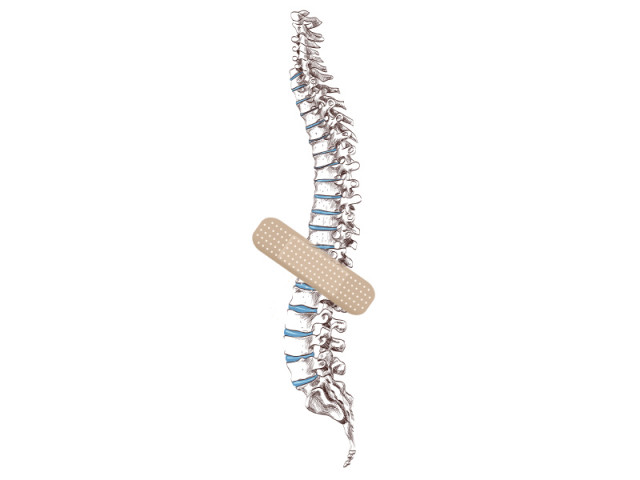Degenerative disease: ‘Don’t let your bones get brittle’
Lead a healthy lifestyle to beat osteoporosis and arthritis in old age, doctors say.

Osteoporosis and arthritis could become as common as diabetes and hypertension in the years to come if people don't start taking care of themselves from an early age, said Dow University of Health Sciences (DUHS) consultant orthopaedic surgeon Dr Parvez Anjum on Thursday.
He was speaking at a seminar organised in connection with the World Osteoporosis Day observed on October 20. The DUHS, the Pakistan Orthopaedic Association (PAO) and the Pakistan Society for Rheumatology (PSR) organised an awareness walk and a seminar to raise awareness about the diseases.
Dr Anjum said that the diseases were unavoidable but people who took care to eat healthy and exercised regularly [took brisk walks for example] had an advantage over those who led a sedentary lifestyle. "Anyone could suffer from osteoporosis or arthritis, especially elderly people, but they can control the intensity of symptoms by leading a healthy lifestyle," he said. "In Pakistan, the number of patients suffering from osteoporosis has been steadily increasing because of our unhealthy lifestyle."
What is osteoporosis?
The word osteoporosis means porous bones. The internal structure of bones is similar to a honeycomb. Osteoporosis sets in when the holes become enlarged, making the bones weak and vulnerable to damage.
A silent killer
"Osteoporosis is also called a silent killer because it is detected once bone breakage has already occurred," said consultant rheumatologist Dr Iqbal Ahmed Mirza. "The disease progresses quietly but gradually."
Every third woman and fifth man over the age of 50 in Pakistan suffers from the disease, he said, adding that most people fail to deal with the disease because they do not take their medicines regularly.
DUHS vice-chancellor Professor Masood Hameed Khan, the chief guest at the event, said osteoporosis and arthritis were known as a weakness of the bones. "This is a major health issue especially because it has no symptoms at the onset. This is why people do not know that their bones are becoming weaker with each passing day… finally a day comes when the smallest fall can cause bone fractures." One way to avoid that is to regularly consume food rich in calcium. "The complications of osteoporosis are immense and quite troublesome for patients… fractures that result from it could lead to disability and even become fatal," Dr Anjum said, adding that osteoporosis and arthritis are the most common of all orthopaedic disorders.
What is arthritis?
Arthritis is a degenerative disorder of the joints. There are three types of arthritis - osteoarthritis, rheumatoid arthritis and gouty arthritis, said DUHS orthopaedic department assistant professor Dr Nusrat Rasheed.
She explained that osteoarthritis was more common among women while more men suffered from gouty arthritis. The onset of the disorder starts with increased weight and old age. The most common symptoms are pain with swelling and stiffness in joints.
It can be treated properly with physiotherapy which can help prevent disability, limping and morbidity. Doctors recommend arthoplasty once the disease has progressed to an advance stage, she said.
The disease could affect young adults as well. "Especially if they are deficient in vitamin D, are obese or have a family history of the disease," she said.
On gout arthritis, she said it was not curable, but treatable. "Symptoms began with morning stiffness of joints and pain in hands and feet. It can also affect lungs and kidneys as it is an auto immune disorder." She said gout arthritis developed because of a spike in the level of uric acid in blood. "That happens due to excessive consumption of red meat."
Published in The Express Tribune, October 25th, 2014.



















COMMENTS
Comments are moderated and generally will be posted if they are on-topic and not abusive.
For more information, please see our Comments FAQ